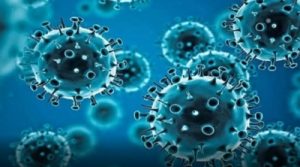
New York, May 5 (IANS) Secondary bacterial pneumonia that does not resolve was a key driver of death in patients with Covid, according to a study.
Interestingly, it may even exceed death rates from the viral infection itself, said scientists at Northwestern University.
Secondary bacterial infection of the lung (pneumonia) was extremely common in patients with Covid, affecting almost half the patients who required support from mechanical ventilation.
“Our study highlights the importance of preventing, looking for and aggressively treating secondary bacterial pneumonia in critically ill patients with severe pneumonia, including those with Covid-19,” said senior author Dr. Benjamin Singer, Associate Professor of medicine at the university’s Feinberg School of Medicine.
“Those who were cured of their secondary pneumonia were likely to live, while those whose pneumonia did not resolve were more likely to die.
“Our data suggested that the mortality related to the virus itself is relatively low, but other things that happen during the ICU stay, like secondary bacterial pneumonia, offset that,” Singer said.
The study was published in the Journal of Clinical Investigation.
The scientists also found evidence that Covid does not cause a “cytokine storm”, so often believed to cause death.
“The term ‘cytokine storm’ means an overwhelming inflammation that drives organ failure in your lungs, your kidneys, your brain and other organs,” Singer explained.
“If that were true, if cytokine storms were underlying the long length of stay we see in patients with Covid-19, we would expect to see frequent transitions to states that are characterised by multi-organ failure. That’s not what we saw,” he said.
For the study, the team analysed 585 patients in the intensive care unit (ICU) at Northwestern Memorial Hospital with severe pneumonia and respiratory failure, 190 of whom had Covid-19.
They developed a new machine learning approach called CarpeDiem, which groups similar ICU patient-days into clinical states based on electronic health record data.
“The application of machine learning and artificial intelligence to clinical data can be used to develop better ways to treat diseases like Covid-19 and to assist ICU physicians managing these patients,” said Dr. Catherine Gao, an instructor in pulmonary and critical care medicine at Feinberg and a Northwestern Medicine physician.
The next step in the research will be to use molecular data from the study samples and integrate it with machine learning approaches to understand why some patients go on to be cured of pneumonia and some don’t.
–IANS
rvt/dpb










